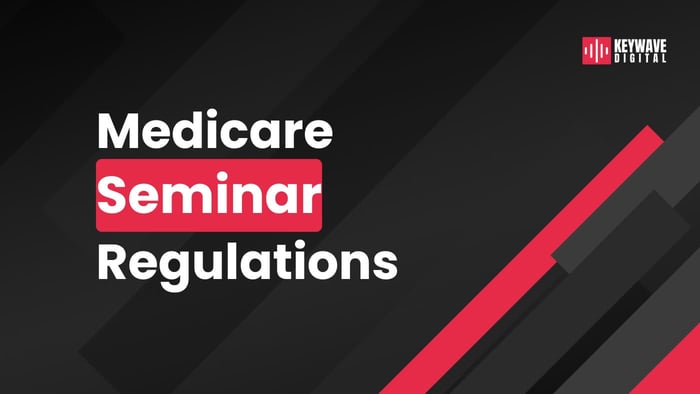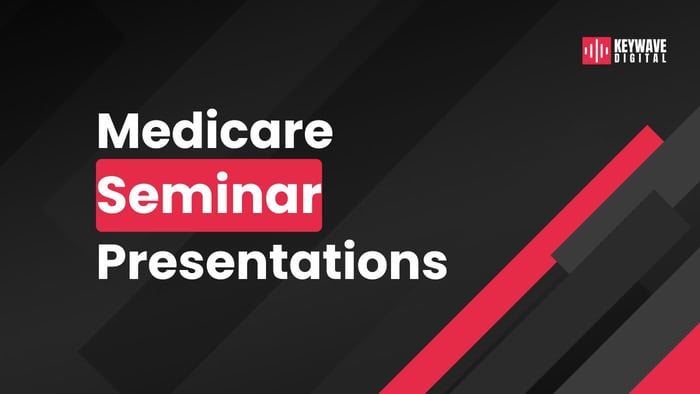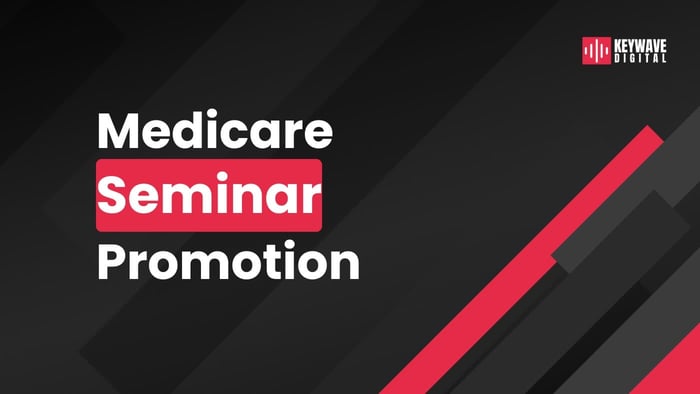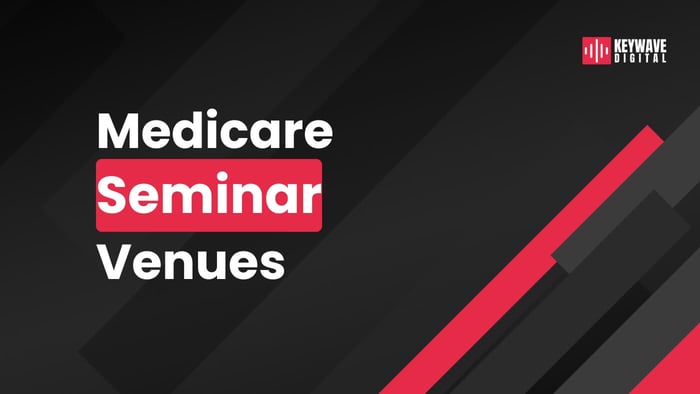Understanding Medicare rules and regulations for Seminars is a complex yet crucial task.
Navigating these rules can often feel like walking through a maze with no clear exit in sight. But here's the thing...
This understanding separates the average Medicare agent from the exceptional professional. If you don't master these regulations, reaching your full potential as an industry expert could remain just out of reach.
The challenge of comprehending Medicare Rules and Regulations for Seminars is real, folks.
Table Of Contents:
- Importance of Understanding Medicare Rules
- Key Medicare Rules and Regulations for Seminars
- Tips for Staying Compliant with Medicare Regulations
- Let's Host Your Compliant Medicare Educational Event
Importance of Understanding Medicare Rules

The ever-evolving landscape of Medicare rules and regulations isn’t easy to navigate.
As a Medicare agent, it's crucial to have a solid grasp of the Medicare rules governing seminars. These regulations ensure that the information provided is accurate, unbiased, and compliant with the Centers for Medicare & Medicaid Services (CMS) guidelines.
A deep dive into these guidelines can shield you from violating CMS Requirements. Failing to comply could bring about fines, penalties, or even cancellation of your insurance license.
Beyond avoiding negative outcomes, staying compliant with Medicare regulations gives you the knowledge and confidence to excel in your role as an agent. It allows you to guide beneficiaries effectively through complicated processes while safeguarding their rights.
When you have such compliance knowledge, you can understand Medicare inside out.
Navigating Through Consequences of Non-compliance
According to the Code of Federal Regulations website, if CMS finds that a Medicare agent has failed to comply with applicable rules and guidance, CMS may take intermediate sanctions and/or civil money penalties. Consequences for non-compliance may include:
- Fines and Penalties
- Damage to Reputation and Credibility
- License Suspension or Revocation
- Cease and Desist Orders
Safeguarding Clients With Compliance Knowledge
Empowerment comes through knowledge, and educational seminars serve as the platform for agents to impart crucial Medicare-related information.
When you demonstrate expertise during educational Medicare seminars, attendees perceive you as a credible source of information. They will feel reassured knowing they're being guided by knowledgeable experts.
By organizing a CMS-compliant Medicare seminar, you demonstrate your commitment to helping individuals make informed healthcare decisions.
Key Medicare Rules and Regulations for Seminars

CMS regulations for educational Medicare seminars serve as the compass guiding you toward ethical and effective practices. These play a significant role in shaping how seminars are organized and conducted.
Navigating the intricate landscape of holding Medicare seminars is a necessity for agents like you. Now, let’s explore the key Medicare regulations that you should follow.
Educational Seminars vs. Marketing/Sales Events
In general, there are two types of Medicare events you can hold – educational seminars and sales events. CMS has established clear distinctions between these two Medicare events.
As a dedicated Medicare agent, understanding the nuances of each option is important.
An educational seminar aims to provide beneficiaries with valuable insights into Medicare coverage, enrollment periods, and similar topics. On the other hand, a sales seminar focuses on a specific carrier's plan.
If you're planning to hold a Medicare educational event, CMS requires you to explicitly advertise it as “educational.” This means you’re not allowed to discuss any carrier-specific plan or benefits.
Before you start the formal event planning, make sure that you’ve decided which type of Medicare event you’d like to host.
Guidelines on Educational Seminars
Since educational seminars are not intended for sales activities, such sessions should refrain from steering attendees toward any particular plans.
As per CMS, plan applications shouldn't be accepted during an educational Medicare event. This might blur the lines between an informational event and a sales pitch, leading some to confusion.
Do's
- Hold an educational Medicare seminar in a public venue.
- Hand out generic educational materials on Medicare programs.
- Collect permission to contact cards during the event.
- Provide generic business reply cards to attendees.
- Schedule future marketing appointments.
Don'ts
- Distribute marketing plan materials.
- Provide or collect enrollment forms.
- Answer specific questions about premiums and copayments.
Starting in 2020, agents are allowed to conduct a Medicare sales event immediately after an educational seminar. This is possible even if the two events are held in the same location. Attendees must be given the opportunity to leave prior to the sales/marketing event beginning.
Food, Promotional Items, and Gifts
Sales and marketing events can be successful during the Annual Enrollment Period (AEP). But outside this period, it is difficult and expensive to get people to attend these types of events.
Offering free meals during your educational seminar will result in higher attendance.
Although CMS has removed the nominal restriction on providing meals at educational events, you should ideally spend no more than $15 to $20 per person on food.
You may provide light snacks and refreshments, such as coffee and doughnuts.
As for promotional items, CMS allows the distribution of promotional materials with logos, phone numbers, and website URLs. However, you are not allowed to give away rebates or cash prizes.
Medicare Seminars on Digital Platforms

The global health crisis has imposed a shift in the way we conduct business, particularly for insurance agents holding Medicare educational events. With safety being paramount, many have had to cancel in-person seminars and adapt their strategies.
In response to restrictions brought about by COVID-19, most agents have shifted from hosting live seminars to compliant virtual Medicare educational events. This not only ensures continued service provision but also widens the accessibility scope, as pointed out by an NCBI study.
Regardless of the challenges posed by the pandemic, Medicare agents have encountered no difficulties in attracting in-person attendance throughout 2023. The ability to keep up with both virtual and in-person interactions shows how adaptable the industry can be when dealing with tough times.
Despite this digital pivot, compliance with CMS rules remains critical.
Agents must ensure all marketing materials used during these sessions adhere strictly to the rules, whether they are conducted physically or virtually. Non-compliance can lead to regulatory penalties.
For comprehensive guidelines on conducting Medicare education sessions virtually, refer directly to the CMS website.
Acceptance of Plan Applications During Seminars
In line with CMS guidelines, it's critical not to accept plan applications during an educational event. This ensures beneficiaries receive unbiased information free from any pressure towards signing up for a particular plan.
This rule helps maintain trust between agents holding Medicare education events and their clients – ultimately benefiting both parties involved.
Tips for Staying Compliant with Medicare Regulations

Medicare regulations undergo several legislative changes due to evolving industry trends. With the dynamic nature of these rules and regulations, how do you stay updated amidst this ever-changing landscape?
Consider the following tips to help you stay compliant:
Navigate the Official CMS Website
The best way to hold compliant Medicare seminars is to review the CMS rules and regulations. Medicare policies can change, so it's crucial to be informed about the latest updates.
Make it a habit to check the official CMS website for any updates and changes. The "Regulations & Guidance" section covers a wide range of topics, ensuring you have a comprehensive understanding of Medicare seminar regulations.
Utilize the CMS Newsroom
When it comes to accurate and timely information, the CMS Newsroom emerges as an important resource.
Discover the latest rules and regulations for Medicare seminars through the CMS Newsroom website. This platform serves as the hub for all official announcements, press releases, fact sheets, and updates related to Medicare.
Subscribe to Email Alerts
You may sign up for CMS email updates so you won’t miss any new guidelines and announcements.
To subscribe to the email list, visit the CMS homepage and look for the section that offers email subscriptions. Provide your email address and choose the category about Medicare seminar rules and regulations.
Once subscribed, you’ll receive updates and announcements directly from the source.
In addition, you may subscribe to newsletters and industry publications to stay informed.
Collaborate With Fellow Medicare Agents
As regulations evolve, having a network of agents to rely on ensures that no important details are missed.
Interacting with peers within the industry can provide you with valuable perspectives and insights. This doesn’t necessarily mean revealing trade secrets or proprietary information. By having collaborative discussions, you can tackle compliance challenges and exchange best practices for Medicare seminars.
Finding collaborators can be as simple as reaching out to agents in your network, attending industry events, or joining online forums and groups dedicated to Medicare agents.
Another avenue for ensuring compliance is by reaching out to your Field Marketing Organization (FMO) or Insurance Marketing Organization (IMO). These entities often possess their own dedicated compliance departments or established partnerships to assist their agents in maintaining adherence to regulations.
Seeking guidance from your FMO or IMO is beneficial when navigating complex compliance requirements and staying informed about industry updates.
Leveraging Carrier Resources for Updates
Apart from direct research, carriers often provide useful resources to stay informed about their beneficiary population. Many offer webinars, newsletters, or informational materials outlining trends within their enrollee base – all serving as reservoirs when preparing compliant Medicare educational event content.
In essence, though, remember that every piece gathered should ultimately aim to provide accurate and unbiased information.
When hosting an educational seminar, help your audience make informed healthcare decisions without feeling pressured into signing up for a specific plan.
Let's Host Your Compliant Medicare Educational Event 
We hope this article helps you grasp the Medicare rules and regulations for seminars.
As a Medicare agent, it's your responsibility to adhere to CMS guidelines. Staying compliant doesn't need to be complicated, but it does require due diligence on your part. Just remember to stay informed of the guidelines, and you’ll be set for success.
The rules can be complex but knowing them separates the average from exceptional Medicare agents.
At Keywave Digital, we are committed to guiding you as you navigate the world of Medicare educational seminars.
There are several things to consider when holding a Medicare event, but don't be discouraged by them. When done properly, seminar marketing can be a great benefit to agents and attendees alike.
If you're ready to get started with our comprehensive seminar marketing system for Medicare agents, contact us today. Let's work together to make your seminars a resounding success!






